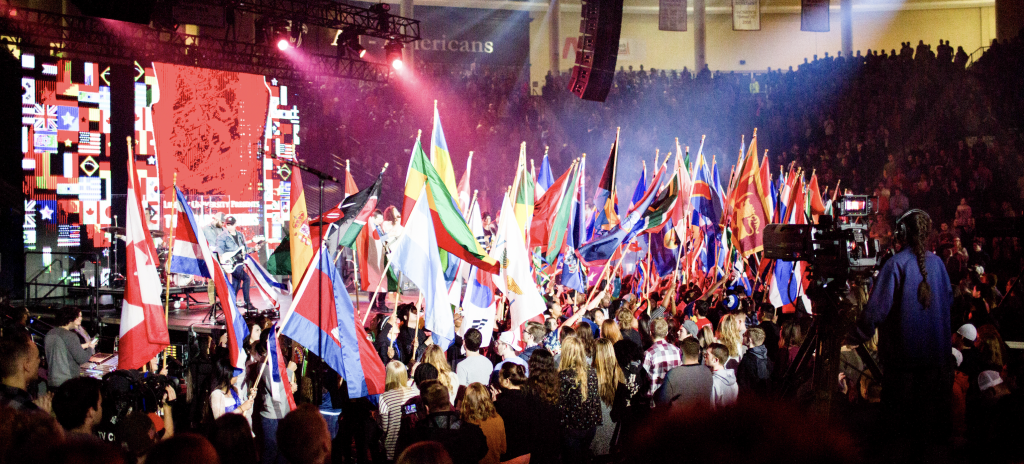“Where are you from?” asks the kind American, making small talk.
The missionary kid hesitates, debating whether to explain their story or simply answer by telling them where they were born in the United States. On one hand, the full story could lead to a great conversation. On the other, the response could lead to the dreaded nervous laughter, coupled with an “Oh, that’s cool” that would end the conversation.
Missionary kids (MKs) are people who spent some portion of their lives on the mission field in a host country but still have connections to their passport country where their parents originate from. In addition to having a complicated relationship with the question “Where are you from?”, MKs represent a unique combination of cultures.
“As a missionary, we leave a country where everything is blue, go to a country where everything is yellow and we become green,” Melissa Frady, former missionary to Zambia, said, explaining how MKs are a blend of cultures. “We are never the same person again but become a little of both worlds. We still aren’t completely yellow, but we are no longer totally blue.”
While many international students have a physical attribute, such as an accent, that helps identify them as a foreigner, most MKs look completely American, even though their cultures may stand as different than American culture. MKs often grapple with their own identity, making explaining it to others nearly impossible.
“It’s actually impossible to fully understand us unless you are us,” Rebekah Leek, MK to Ecuador, said.
The stress of being at school while their families are thousands of miles away and across international borders can take its toll as well. Because of the uncertainty and danger that currently prevails over many areas of the world, MKs pray fervently for their families and loved ones. Even if there is no pressing danger, the emotional stress of not being able to see their families in person for months on end – even years – is trying enough.
Despite the difficulty of completely connecting with others and the fear and longing for their families, MKs enjoy talking about their multicultural experiences and most have had terrific experiences seeing God work in the ministries of their host countries.
However, they stress that asking the right questions remains vital when talking about their experiences. MKs find it hard to answer broad questions like “What is the difference between your country and the United States?”
On the other hand, Elena Mackey, MK to the Dominican Republic, noted that once a girl asked if D.R. homes had the same household goods as American homes – including things like hand towels.
“I appreciate it when people who don’t actually care don’t pretend to care because they always ask the worst questions,” Jonah Masson, MK to Taiwan, said. “I have found that when people are genuinely curious and care, they ask better and often more specific questions.”
There are myriad questions that MKs would love to hear over the typical “Where did you grow up?” Some examples include “How did living overseas impact who you are now?” and “Can you tell me about what you have seen God do in ministry in your country?” As is the case with many Christians, MKs appreciate being asked about how others can be praying for them and their families.
MKs also enjoy learning from others, appreciating that everyone has a unique perspective on life to share. “Single-culture friends,” as MK to Costa Rica Adrianna Rought calls them, can also teach components of their own culture to those who are not familiar with it.
Not knowing where to call home also stands as a repercussion of belonging to different places and cultures. Answering the question “Where are you from?” is one aspect, but MKs struggle with something much more profound than answering a simple question. Many have lost the sense of home due to having so many homes in the past.
“Home to me is nowhere and everywhere,” Rought said. “Home is sitting in the Costa Rican sun with the officers, drinking coffee and going over tactics. Home is driving around Michigan with my sister in the summer, drinking Baja Blasts. Home is walking to class with my sweet nursing friends in Lynchburg and complaining about how hard the last test was.”
Missionary kids want to know and be known, but they often have to put forth extra effort to bridge cultural gaps. When people ask the right questions, though, MKs open up about their experiences, and both parties may benefit from a new perspective.
“We want to love you and be loved by you,” Megan North, MK to Peru, said. “So, this is a little about us so that you can understand us better.”
Hetzel is a feature reporter. Follow her on Twitter
